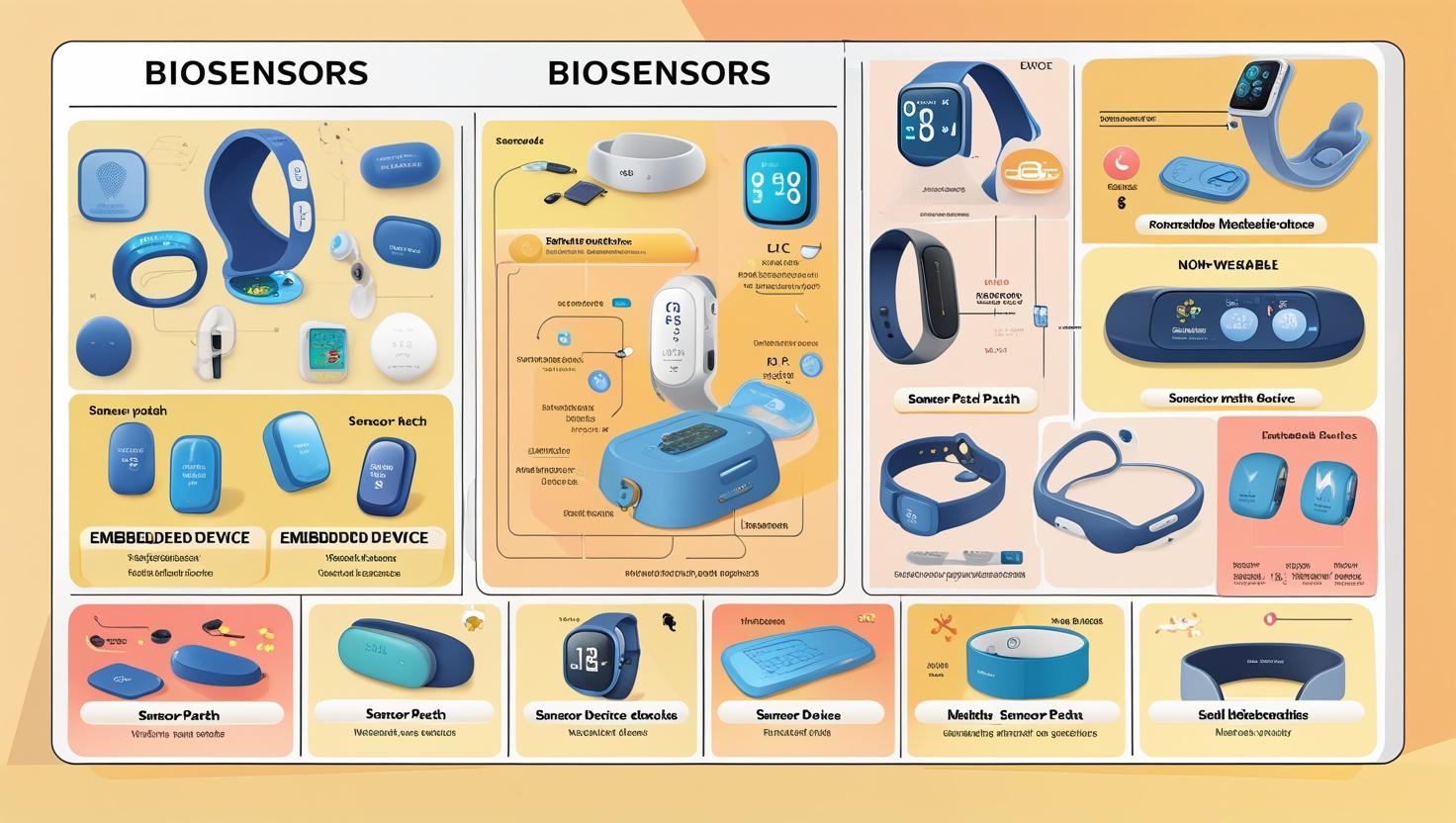The biosensors market is experiencing a significant upswing, propelled by cutting-edge innovations in healthcare technology and an increasing global emphasis on early diagnosis and personalized medicine. These devices, which translate biological information into measurable signals, have become essential tools across multiple sectors, especially in healthcare, where accurate and timely monitoring can drastically improve patient outcomes.
Understanding Biosensors and Their Role in Modern Healthcare
Biosensors function by detecting specific biological markers—such as enzymes, hormones, or pathogens—and converting these signals into electronic data that can be analyzed in real time. Their utility spans from diagnosing diseases to monitoring chronic conditions and guiding treatment decisions. Unlike traditional laboratory testing, biosensors offer rapid, often point-of-care results that can be obtained outside hospital settings. This capability makes them particularly valuable in managing conditions like diabetes, cardiovascular diseases, and infectious illnesses, where continuous or frequent monitoring is critical.
Technological Innovations Driving Market Expansion
Advancements in microelectronics, nanotechnology, and materials science have dramatically enhanced the performance and versatility of biosensors. Miniaturization has allowed the integration of biosensors into wearable devices, enabling continuous health monitoring without compromising user comfort. Furthermore, the advent of flexible and implantable biosensors is opening new frontiers for long-term monitoring of vital signs and biochemical parameters.
The global biosensors industry is projected to grow from USD 34.51 billion in 2025 to USD 54.37 billion by 2030, at a CAGR of 9.5%
Download PDF Brochure @ https://www.marketsandmarkets.com/pdfdownloadNew.asp?id=93290334

The integration of biosensors with smartphones and cloud platforms has revolutionized data accessibility. Patients and healthcare providers can now track health metrics in real time, remotely, and over extended periods, enabling proactive healthcare interventions. Artificial intelligence and machine learning algorithms further enrich this data by identifying patterns and predicting health events, moving healthcare from reactive to predictive and preventive paradigms.
Rising Demand for Point-of-Care and Remote Monitoring Solutions
The COVID-19 pandemic underscored the urgent need for decentralized healthcare and rapid diagnostic tools. Biosensors have stepped into this gap by facilitating point-of-care testing, which reduces the dependency on centralized labs and accelerates clinical decision-making. This trend has extended beyond infectious diseases to include chronic condition management, where home-based biosensor devices empower patients to monitor their health regularly without frequent hospital visits.
Remote patient monitoring, enabled by biosensors, is especially transformative for elderly and vulnerable populations, improving quality of life while reducing healthcare costs. The convenience of real-time monitoring coupled with immediate alerts for anomalies enhances patient safety and adherence to treatment regimens.
Expanding Applications Beyond Healthcare
While medical diagnostics remain the primary driver, biosensors are making significant inroads into environmental monitoring and food safety. In environmental applications, biosensors detect contaminants such as heavy metals, pesticides, and pathogens in air, water, and soil. Their sensitivity and rapid response times make them suitable for early warning systems that can prevent public health hazards.
In the food industry, biosensors ensure product quality by detecting spoilage, toxins, or microbial contamination during processing and storage. This capability helps manufacturers comply with safety regulations and protect consumers.
Market Dynamics and Regional Growth Patterns
The biosensors market is characterized by dynamic innovation and expanding demand across different regions. Developed markets in North America and Europe lead in technological adoption due to advanced healthcare infrastructure and supportive regulatory frameworks. These regions also drive research and development activities, contributing to product innovation and diverse application areas.
Meanwhile, emerging economies in Asia-Pacific and Latin America are witnessing accelerated growth due to increasing healthcare awareness, expanding insurance coverage, and investments in healthcare modernization. Countries like China, India, and Brazil are experiencing a surge in demand for affordable, easy-to-use biosensor devices to cater to large populations affected by chronic and infectious diseases.
Challenges in Market Adoption and Future Prospects
Despite strong growth prospects, the biosensors market faces challenges related to regulatory approvals, data privacy, and the need for standardization in testing and interoperability. Ensuring accuracy and reliability of biosensor readings across diverse populations and conditions remains critical for widespread acceptance.
However, these challenges also represent opportunities for innovation. The development of universal standards, enhanced cybersecurity measures, and user-friendly designs will be key enablers for market expansion. Collaborations between technology firms, healthcare providers, and regulatory bodies are essential to overcome these hurdles.
Looking ahead, the integration of biosensors with telemedicine platforms and health ecosystems promises to transform healthcare delivery. The move towards personalized medicine will further amplify demand for biosensors tailored to individual genetic and physiological profiles. Continuous innovation in sensor materials, data analytics, and wireless communication will sustain robust growth through 2030 and beyond.
The biosensors market stands at a pivotal point, with technological advancements and evolving healthcare needs driving rapid adoption worldwide. By providing real-time, accurate, and accessible health information, biosensors are reshaping diagnostics, patient monitoring, and treatment paradigms. As healthcare systems become increasingly digitized and patient-centric, biosensors will play an indispensable role in improving health outcomes and enhancing the quality of life across diverse populations.
Key companies operating in the biosensors companies include Abbott Laboratories (US), F. Hoffmann-La Roche Ltd (Switzerland), Medtronic (Ireland), Bio-Rad Laboratories, Inc. (US), DuPont (US), Biosensors International Group, Ltd. (Singapore), Dexcom, Inc. (US), Masimo (US), Nova Biomedical (US), Universal Biosensors (Australia), ACON Laboratories (US).
